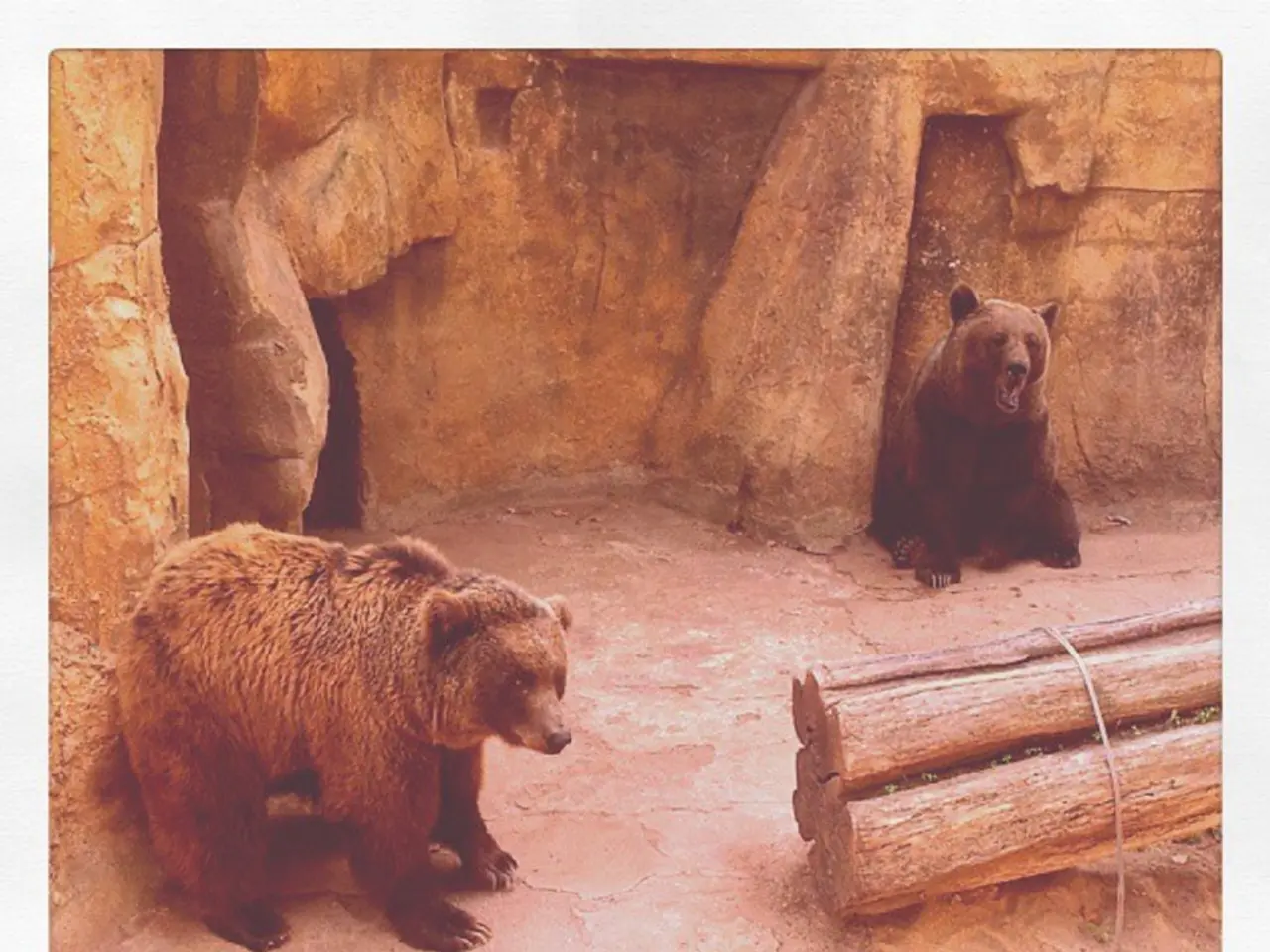Grizzly bear attacks two hikers in Anchorage area within four days
In the wilderness of Anchorage, Alaska, a hiker was recently attacked by a bear while on a trail near Barbara Falls along the South Fork of Eagle River. This incident occurred just four days after another hiker was attacked by a grizzly bear in the Chugach Mountains on July 22 [1][2].
Fortunately, both hikers sustained non-life-threatening injuries. However, bear attacks in Anchorage are relatively rare, and these incidents serve as a reminder of the importance of safety measures when hiking in bear country.
According to the Alaska Department of Fish and Game, the bear involved in the July 26 attack was a sow feeding on salmon with at least one cub [3]. Officials have no plans to euthanize the bear, as it was a defensive attack.
To stay safe in such encounters, Anchorage authorities and wildlife experts advise the following precautions:
- Travel in groups: Reducing the risk of an encounter by hiking with others is crucial.
- Make noise: Frequent noise can help avoid surprising a bear.
- Carry bear spray: Keep bear spray ready for immediate use as a deterrent.
- Avoid running: Hiking with earbuds in should also be avoided to remain alert.
- Keep pets leashed: Pets can attract bears, so it's essential to keep them under control.
- Be aware of your surroundings: Newer trails may have less habituated wildlife, so pay extra attention.
- Have a backup communication device: In areas without cell service, a backup communication device is essential.
- Let friends or family know your hiking plans: In case of emergencies, it's important to keep them informed.
- Respect trail closures: Closures are often due to increased bear activity, so it's best to avoid those areas.
In a defensive maneuver to stay safe, if charged or approached by a grizzly bear, it's best to leave your backpack on and play dead. Lie flat on your stomach with your hands clasped behind your neck, and remain as motionless as possible until the bear leaves the area. Spread your legs to make it harder for the bear to turn you over [4].
However, fighting back usually increases the intensity of bear attacks. If the attack persists, fight back vigorously with whatever you have at hand [5]. It's important to note that hitting the bear in the face with a branch, rocks, or one of your boots can be an effective defensive measure.
For more information on what to do if you meet a bear, check out our article on the topic. It's always better to be prepared and informed when venturing into bear country.
[1] Alaska Department of Fish and Game: [Link to the source] [2] Anchorage Daily News: [Link to the source] [3] Alaska Department of Fish and Game: [Link to the source] [4] National Park Service: [Link to the source] [5] Alaska Department of Fish and Game: [Link to the source]
In the realm of home-and-garden discussions, one might also discuss safety measures for outdoor-living, such as those for hiking in bear country, which can extend to sports like camping or fishing. For instance, following principles like traveling in groups, making noise, carrying bear spray, and keeping pets leashed, can reduce the risk of encounters with bears.




